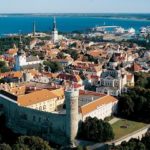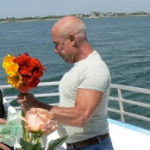Compiled by Richard Ammon
GlobalGayz.com
February 2012
Introduction
Both male and female same-sex sexual activity is legal in the Republic of the Congo, also called Congo Brazzaville. (Not to be confused with the Democratic Republic of Congo) These acts never have been criminalized but there is no legal recognition of same-sex couples. Because of the social stigma associated with homosexuality there is no public gay or lesbian community or organization.
The republic is a former French colony. Upon independence in 1960, the former French region of Middle Congo became the Republic of the Congo. The People’s Republic of the Congo was a Marxist-Leninist single-party state from 1970 to 1991. Multiparty elections have been held since 1992, although a democratically elected government was ousted in the 1997 Republic of the Congo Civil War. Since then elections have been highly manipulated, violent, corrupt and not truly representative of the population.
The current regime under Denis Sassou Nguesso has been publicly accused of corruption and embezzlement despite attempts to censor them. One French investigation found over 110 bank accounts and dozens of lavish properties in France owned by Congo government insiders; Sassou dismissed the investigations as “racist” and “colonial.” So much for good governance and respect for human rights.
There is very little internet information about gay life in Congo but the following two reports reveal the degree and extent of homophobia in Congo:
(1)
Female Homosexuality in Republic of Congo
CongoZoom.com
January 20, 2010
By Sakwamé Rudolph
The Congo has a system of secular government and operates in principle as a democracy. Despite promising changes, many marginalized groups, including the homosexual minority (lesbian), which continues to be denied a right to visibility. Lesbians are certainly many in Brazzaville, the capital, but many suffer from not being able to express their feelings.
“People think the sexual part, [but] it’s not sex, we could Veronique explained a young woman of twenty years. This is attraction, love, the same as what happens in heterosexual relationships and friendships. ”
The Congo is inhabited by over 80% Christian. Although the country has a long tradition of secularism, religious fundamentalists are currently strengthening their political power and influence in the country. As is the case with any form of religious fundamentalism, Christian fundamentalism could endanger all marginalized communities. Homosexuality is forbidden by biblical law. The Koran (for example) speaks of the tribe of Lur, whose men had sex with each other, to punish this transgression, Allah sent a shower of stones.
The Bible says that homosexuality is an “abomination” of homosexuality would be, “perversion of the divine order, denial of nature, the Bible and Africa.” Far from condemning such remarks, the majority of Africans acquiesce in many churches, temples or mosques in the Congo, religious leaders preach against homosexuality and declared that AIDS is another shower of stones at homosexuals. Because of such teachings, Congolese children grow up believing that lesbians are sinful. Being a lesbian is seen as a threat to the family and, by extension, society in general.
Pervasive bias in Congolese society are the lesbians under enormous pressure. It is very difficult for a lesbian, especially a young lesbian, to take personal or to their family or friends. Every lesbian should find its own way, without using a visible community of lesbians or any other relief organization.
A lesbian who is able to live independently has a history of struggling with other lesbians. “How out of the closet”, how to feel proud of her sexual identity especially when you know the generally negative portrait that traditional media are lesbians in publishing letters of protest. Even if a lesbian is supported by some feminists, it is clear that lesbians must organize independently of a feminist movement. Some lesbians may experience feminist, but can not speak freely on issues that heterosexual women because, even within these organizations, the prejudice against lesbians is omnipresent.
Increasingly, some women choose to live their sexual lives differently. They go against the natural order of things. This could be much debated. Discussed but where? That is the question. True in the West, we talk openly. In Africa, for cons, the subject is a real taboo. For the common opinion, homosexuality is linked to the stereotype of the effeminate men and masculine women. In other words, the butch lesbian would be, while the effeminate homosexual or gay would.
In Senegal, for example, the term for homosexuals is “gorjigeen” in Wolof, which literally means “man woman”. Homosexuality is also often confused with pedophilia and pederasty. If the homosexual lover of etymologically means the barely pubescent boys, the pedophile in turn will be the individual who has a sexual preference for children, while gender confused.
The majority of Africans really have a misperceptionof homosexuality. Anything that constitutes sexually deviant behavior is homosexuality. But the fact that several countries have in terms of their languages to index homosexual practices shows that homosexuality has always existed. It is not a product of the West. Let’s be realistic. Already in ancient and traditional societies, certain forms of homosexual practices were allowed. Homosexuality has always existed, in varying degrees, in all societies, Africa is no exception, sometimes prohibited, sometimes tolerated. Except in Africa, people live in hiding their homosexuality.
Homosexuality remains largely taboo in most SSA countries, but also in the Maghreb countries. South Africa and Ivory Coast are the only African countries to accept homosexuality. In 1996, with the end of apartheid, South Africa became the first African country whose constitution explicitly protects all citizens, whatever their sexual orientation. But this is just a drop in an ocean. In the field, homosexuals suffer a fate more terrible. They are stoned in the streets, burned alive by the people.
In Nigeria, the largest Muslim country in black Africa, the Koranic law is clear on this: “Homosexuality is a repulsive act against nature.” For any homosexual found, the punishment is the same as that reserved for thieves and other highwaymen. There are those who marry with the opposite sex to hide, but live in hiding their homosexuality. Robert Mugabe, Zimbabwe’s president, in 1998 described homosexuals as “worse than pigs and dogs.” If he said aloud, the majority believe in a whisper. It is true that some homosexuals are grouped in associations, but they are not recognized. And if they appear in the public square, they expose themselves to lynching. It would be better that they live in hiding their orientation as to expose to heterosexuals. It is a choice to live his life.
(2)
Life as a Gay Refugee From the Republic of the Congo
From LGBT Asylum News
August 2011
by Junior Mayema
Life in South Africa as a gay black Congolese person is a horrendous nightmare. Well, many days I wish it were just a nightmare. But it is the reality for me. This reality is one full of intolerance, discrimination, and prejudice.
I am a refugee and a gay activist – this is my story. I fled my home after my mother tried to inject me with a syringe full of gasoline when she discovered that I was gay. After leaving my mother’s house, I began living with my father and I attended Bandundu University. I became friends with other gay students at the university and began to date and experiment. During this time, my father saw a picture taken of me kissing another man. After confronting me, my father and mother forced me into a “healing process” run by a pastor. I was made to fast for days in order to expel the “devil spirit” out of my body.
When I did not change my behavior, my father spread the news of my homosexuality to the community. Local boys began to beat me. I was particularly weary of a notorious group that hunted homosexuals. My friends and family shunned and banished me.
My life was in danger and I had nowhere to go, so I came to South Africa. I came full of hope that things would get better; that I would be able to live my life without fear of being persecuted for who I am. And in some ways I do feel safer here than I did in Congo. But after being here for a year, I can honestly say that this hope did not come true.
Life is tough here. Firstly, there is a lot of homophobia in the Congolese community in South Africa. When I first arrived, I lived with my cousin. When he found out from my family in Congo that I was gay, he kicked me out on the street. My mother ensured that no other family member in South Africa took me in after that.
Since then I have moved around a lot, living with different Congolese people, but the story is always the same: once they detect that I am gay, they kick me out. I also lived in some shelters and there I experienced xenophobia from South Africans. Even some members from the South African LGBTI community were not helpful. Their priority is to help South African LGBTI individuals, but other LGBTI refugees, like myself, have less access to support groups and assistance. It is tiring to be reminded every day that you are ‘not a South African’, and it hurts even more when it comes from other LGBTI people.
I wish I could just get to my feet and find a job. But finding a job in South Africa is tough enough as it is; trying to find a job as an openly gay foreigner is close to impossible. I have been looking for a job since I came here and I felt that most of the managers were judging me by my ‘gay’ physical appearance.
Although the South African constitution protects LGBTI people from discrimination, homophobia is deeply rooted in South African society. The majority of South Africans, like in most other African countries, think homosexuality is a western culture emulated by some African youths who are being recruited by white sugar daddies into homosexuality.
What can be done to change the desperate situation that I and countless other LGBTI refugees in South Africa are facing? Changing the culture of homophobia is difficult, but it has to be done, step by step. More people need to start campaigning against homophobia within our communities. We need to raise awareness and take action against xenophobia and racism in parts of the South African LGBTI community. We need to create a shelter or accommodation for LGBTI refugees in South Africa to help them get on their feet.
We have to build up a job referral system for LGBTI people to tolerant or ‘gay-friendly’ businesses and managers. It is unlikely that things will get better in the near future. Yesterday I got kicked out by yet another Congolese host, on my 24th birthday. But hope is what dies last.
Junior Mayema is a volunteer with People Against Suffering Oppression and Poverty (PASSOP)
















